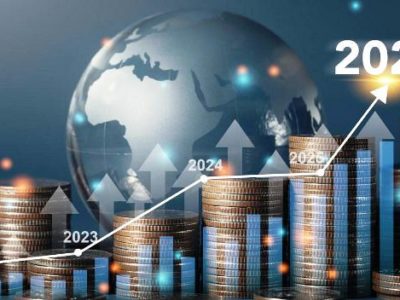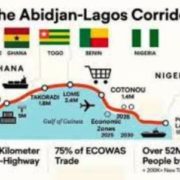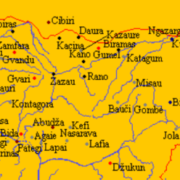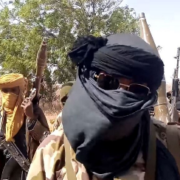The research focused on the state of renewable energy in Benin, Togo, Ghana and Nigeria highlighting potential areas of intervention to support the adoption of renewable energy and foster a just transition to renewable energy on the continent.
The report identified the need for strong and steady promotion of renewable energy in the targeted countries, by raising awareness of its benefits and opportunities, removal of financial barriers, implementation of enabling policies, encouraging innovation and research, as well as upskilling of workers.
The report was launched as Civil Society Organizations and grassroots groups under the Afrika Vuka network held actions across the continent to highlight the role of renewable energy as a solution to the region’s energy and climate crises. They underscored the need to address the barriers to the build out of community-centered renewable energy systems and the phasing out of fossil fuels, to avert worsening climate impacts, for a continent that already suffers disproportionately from these impacts.
Landry Ninteretse, Regional Director, 350Africa.org said, “while our continent is sadly on the frontlines of the climate crisis that we have done little to cause, we are fortunate to have access to some of the solutions. Africa’s wealth of renewable energy potential presents a great opportunity for the continent to not only address her own energy needs, but also potentially lead the global energy transition.
“What is required are concerted efforts by governments and other stakeholders to address the barriers to renewable energy – starting with finance and policy -by creating an enabling regulatory environment for its adoption, accelerating the shift away from polluting fossil fuels, while investing consistently in powering up community-centered renewable energy solutions that are absolutely critical to ensuring that we avert catastrophic climate impacts and secure a liveable future for us all.”
Michael Terungwa, Climate activist and Founder – Global Initiative for Food Security and Ecosystem (GIFSEP), Nigeria said, “we need safe, reliable and sustainable energy systems to drive our economies. Continued dependence on polluting fossil fuels is not an option for us, as it has resulted in a climate crisis that is devastating communities. Just last year, Nigeria suffered flooding that led to the loss of hundreds of lives and displacement of an estimated 1.5 million others. We are counting on the political will of our new leadership to pave the way for the much needed just transition in Nigeria by being intentional in implementing relevant policies that create a conducive environment for the adoption of renewable energy.
“Portia Adu Mensah, National Coordinator – 350 Ghana Reducing Our Carbon (350GROC) said, “Ghana needs an ambitious and concrete plan for renewable energy as we shoot for at least 30% renewable energy in the country’s energy mix by the year 2030. We not only need to break free from fossil fuels, but also ensure that small-scale, off grid community friendly renewable energy is accessible to all. The involvement of communities in this is crucial, to ensure that plans factor in their views and interests as well as safeguard the well-being of the environment.”
Raïssa Oureya from the Renewable Energy Coalition said,“ the recently launched Renewable Energy Coalition (REC) of grassroots groups in Benin and Togo is geared at advocating for the adoption of renewable energy in these two countries that have great potential in renewable energy, but still rely heavily on energy imports. It’s critical to maintain the push for a sustainable energy future built on renewables to enhance energy security and address the climate crisis. Beyond the launch of this research, we are holding various actions to raise awareness on the role of renewable energy in enhancing sustainable development in hopes that this will spur a much needed clean energy transition”
Ferron Pedro, South Africa Senior campaigner, 350Africa.org said, “South Africa’s energy crisis is a stark reminder of the dangers of reliance on fossil fuels. A just energy future built on socially owned renewable energy is possible and necessary to ensure access to affordable, safe energy for all while creating millions of green jobs. We call for transparency and meaningful public participation in the implementation of just energy transition programmes to ensure that the needs and interests of workers, communities and marginalized groups are placed centrally in the development of local, job-creating renewable energy industries”.


















